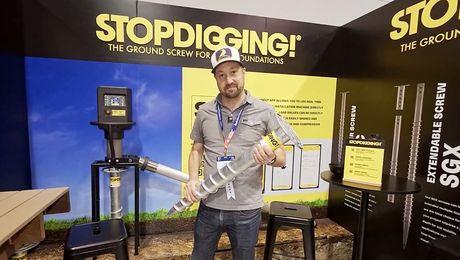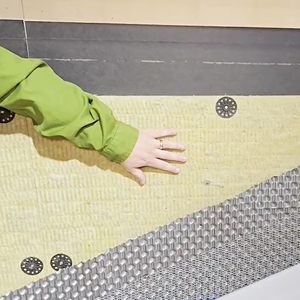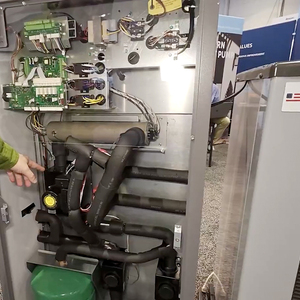Building Inspectors – What’s your experience with them?
What good experiences have you had with Building Inspectors?
What bad experiences have you had?
What could an Inspector do to make your interaction with them better?
How do you react when they point out that your project does not meet the specs as specified on the approved plans?
If you are or have been a Building Inspector, what do you see that a BI could do better?
Thanks!
Bryan



















Replies
My experiences have been good.
Anyone else have any experiences with building inspectors?
Bryan
Hope all is well down by you.
Over the years I've had numberous interactions with inspectors-those I know and deal with regularly and those that I've encountered in new jurisdictions. It's been my experience that foremost their interests have centered on guaranteeing that things are built to code.
Some have been well educated, some book learning only. Many were former builders or tradesmen that gravitated to a steady job, rather than fight the economic changes, age or weather.
I agree with Mike in that the relationship can and should be amiable, not the adversarial type that we sometimes hear about (or run into). My action upon an inspection was to always greet them with a warm hello and somehow come up with anything to break the ice other than the job. "Feeling them out" usually produced enough information in the first couple minutes that led to a successful relationship on that job.
I've worked for some contractors that looked on them as the enemy, and those jobs turned ugly fast. Nitpicking reached new heights as one tried to outdo the other.
If I've any question about anything, I usually ask-some would say to not mention anything until it comes up. To me, that is a waste of time and often, material. Sure-the plans as approved lay it out-but in most residential inspections-there's a vast amount of area open to interpretation and expertise.
I learned to nail headers and beams both sides. Most inspectors don't look for or really care. One Wood County inspector did and would ask (and we would show him), that they were in fact fastened from both sides. After that initial simple "passing" of his likes and dislikes, he could (but didn't) final it out from the seat of his car. At final, he asked me to request him for any future projects as he liked to finally go on a rough and not have to return 3 times to pass it.
When the plumber saw him pull up for the first time-he told me I was xxxx'd, as this was the dude that looked for everything and never gave an inch.
Commercial, much more thorough and usually never a familiar face. Again, do it right-have everything ready, and honor their role in construction.............never a problem.
But I'll be the first to admit-local or regional differences probably trump the experiences I've had.
Getting along with inspectors is very important. I have seldom found any with a bad attitude. When I am on a job with an inspector who I don't know, I introduce myself and as for a buisness card. A few minutes of conversation often breaks the ice. Inspectors are generally helpful. In walking through a job with an inspector I always point out the things that the inspector is most likely to be careful about and any things that are out of the ordinary. Being able to answer questions knowledgeably is a big plus. Don't argue, do what they say.
Only two time have I disputed an inspectors call. Once on a TI job an inspector called me on a plumbing fitting that he claimed was not approved for the particular use where I had it. The fitting was not the one he named. I'm a GC and not a plumbing contractor and he insisted that if I wanted to know what was wrong I should consult a plumber. I did. The plumber I consluted was former head of the building department. He found nothing wrong with the fitting. I appealed to the department and they allowed my installation. Only, later did I learn that the installation was wrong, but not for the reasons the inspector cited.
Another time an inspector called me on a electrical ground issue. It was something I'd been 'round and 'round with inspectors before and knew the code well. Neither the inspector nor I had a code book with us, but he went back to the office looked up the section and called me to tell me I was right.
In the state of Washington, although every county has a building department, electrical is under state jurisdiction. GCs are not allowed to do electrical on their own jobs, but a owner builder can. On this job the owner did the work under my supervision and I met the inspector. He was a real arsehole. He called me on stuff that was not techincally wrong and made me fix it. When he came for reinspections he found stuff that he hadn't found before. You'd fix that only to have him come back and find something new. I'm sure he did this because I didn't have a state licensed electrician. I heard from others that this guy wouldn't even allow HVAC guys to do their own stat wiring, it had to be an electrician.
Building Inspectors?
I have found building inspectors to be very helpful. They look at far more work than I do and often have suggestions that help me avoid problems later. They know the code book inside and out and are usually willing to consider an alternative if it meets the spirit of the code.
The access I now have to building departments through e mail is great, too. I often find an unforseen issue on the job, send an e mail after dinner or early the next morning with a question and have an answer by lunch. Very convenient.
I just try to remember this - these folks show up on the job expecting some level of confrontation. They respond well to a cooperative attitude if you give them the chance - like most professionals.
Often, I find inspectors I haven't dealt with before to be a little stand-offish. Can't blame them there - They're feeling out the territory. Once they've seen good work, they tend to get friendlier. In the vast majority of cases, they're just looking to make sure the job meets the intent of the code.
I did have one inspector who refused to look at a footing because the ground was muddy. Umm... I called her boss and he was on the job within a couple of hours. That's really the only issue I've ever had.
Wet footings
I've had inspectors who, rightfully, would not sign off on footings filled with rain water when it covered the steel. I was building a sign one time. Two large timber posts set in concrete. The holes for the concrete were 8' deep about 2' square, each would contain a yard of concrete. No steel. At about 7 1/2 feet we hit ground water so there was about 6" in the hole. The inspector said we needed to pump the water before the pour. I avoided asking him if he thought the concrete would float. We didn't pump the water and the concrete didn't float. It pushed the water out of the hole.
In the case I mentioned, the issue wasn't with the footings themselves being too muddy. It was that the site was muddy and she didn't want to get her shoes covered. Welcome to the real world.
I assumed that was the case. It just reminded me of the floating concrete.
I've noticed the entry level inspector too focused on finding the one single code violation, just so they could write something up. And in the process overlook a major inspection item that isn't up to snuff.
Once had a electric final rejected for a simple knockout left open in the panel, and on the rein spect , a different inspector showed up and failed the project for improper wiring methods , a rough in inspection item. The inspector tried unsuccessfully to apply a more stringent code to the use of the building. Since then I've learned to keep little things on hand like wire nuts , green ground screws , kickplates, fire caulk,duct seal, hangar nails, .. The most missed hardware items left out by the subs.
I live in a place where there are no inspections, so for the past 25 years, no experiences.
But from other places, I found that when you are human and open to communication you generally get what you give.
I remember one who spent time on my first framing inspection going over details and asking questions about what I did and why. That was my first solo frame addition job so I was nervous. He passed it without criticism.
Next job, he walked in and simpolky asked where the sheet was to sign. I wondered aloud if he did not want to look around?
He just said that he already knows what kind of work I do and no need to waste time looking.
Only negatiuve expewrience turned out good. The main guy at the office was denying me a permit to do something. I went in armed with back up paperwork and a copy of the page from code book and ased him if he had other code sources I should know about that gave him cause to deny. He just said, "OK, I see you know how to do this" and signed off on the permit.
So a lot comes down to their trust in you as a builder. When they get the idea you may b e ignorant or trying to get away with something...that is when you need to watch out.
I do hear other stories of big poblems that usually originate with inspectors who are new on the block and don't have the experience, judgement or knowledge needed to excercise the kind of authority they wield
I live in a place where there are no inspections, so for the past 25 years, no experiences.
But from other places, I found that when you are human and open to communication you generally get what you give.
I remember one who spent time on my first framing inspection going over details and asking questions about what I did and why. That was my first solo frame addition job so I was nervous. He passed it without criticism.
Next job, he walked in and simpolky asked where the sheet was to sign. I wondered aloud if he did not want to look around?
He just said that he already knows what kind of work I do and no need to waste time looking.
Only negatiuve expewrience turned out good. The main guy at the office was denying me a permit to do something. I went in armed with back up paperwork and a copy of the page from code book and ased him if he had other code sources I should know about that gave him cause to deny. He just said, "OK, I see you know how to do this" and signed off on the permit.
So a lot comes down to their trust in you as a builder. When they get the idea you may b e ignorant or trying to get away with something...that is when you need to watch out.
I do hear other stories of big poblems that usually originate with inspectors who are new on the block and don't have the experience, judgement or knowledge needed to excercise the kind of authority they wield
Guess what?
I am now part of "the enemy"!
I started working with Wood County back in August as a Building Inspector part-time. I am hoping to go full-time within the next three years. Maybe I will get to inspect one of your projects some day. Don't ask me for any special privileges!!!!
I really appreciate the observations of the different contractors who have replied. I want to be a good inspector and make sure that the code is followed. Yet, I don't want to be a nit-picker over the really little items. We need to look for items that concern personal safety, such as fire safety & exits, structural integrity, etc., and that conform to the approved plans.
What is especially difficult is inspecting an acquaintance’s work. It calls for you to be objective. It doesn't matter whether they are your friend or not, you have to treat everyone the same. The inspector who trained me the first couple of weeks told me that whatever you require of one contractor, you have to require that of everyone. And that is what I have tried to do. It's only fair.
Another thing that is difficult is not comparing the way the work has been done to the way I would have done it. The inspector who trained me the first couple of weeks asked me after we left a garage that a DIY’er did: “Would you have done it that way?” And I said “No”. But, it met code, and that is what we are looking for.
One of the things I do is make a phone call to the contractor or homeowner for all of the inspections I am scheduled for before I leave the office in the morning. I want to know if the contractor will be pouring concrete and, if so, what time, if they are going to be backfilling, insulating, installing drywall, or anything else where I need to see something before it gets covered up. That way I can get the inspection done so that they can move ahead with their work.
One contractor told me yesterday that he would like me there first thing so that he could get the footers poured and then go make some money. So I went to his site first. That way he didn’t have to sit there all day waiting for me to show up.
Another contractor told me that in his 18+ years of contracting, I was the first inspector to call him to see when he needed me to be there for the inspection. He appreciated that.
If any of you have any further suggestions on how I, as an inspector, can make your life easier, please let me know. In reality, we are working for the property owner. We both want what is best for them. So we need to work together, not be enemies.
Thanks again for your input.
Bryan
My first experience in Wood County was with the then head of inspection-Connolly was his name-a real great fellow-took his busy time and guided us through the process. One of the best I have met, hands down.
About a year ago I did some door work at a church here in Maumee. They have an adult respite program-a place for the old to go for social activities. Several alzeimers there. There he sat. I walked by, noticed him at the table, I was crushed. I smiled, put a hand up to my cap but did not stop, planning to maybe talk to him b/4 I left. I hoped he remembered-we always had time to talk whenever I ran into him-whether in the office or out socially..............
Before I left for the day I stopped in the room-he was already gone. Figured I'd run into him again sometime. Never had the pleasure-he passed not too long ago.
Best of luck in your new career-and please stay around BT-there's a place for those that know the code-or at least know where to look.